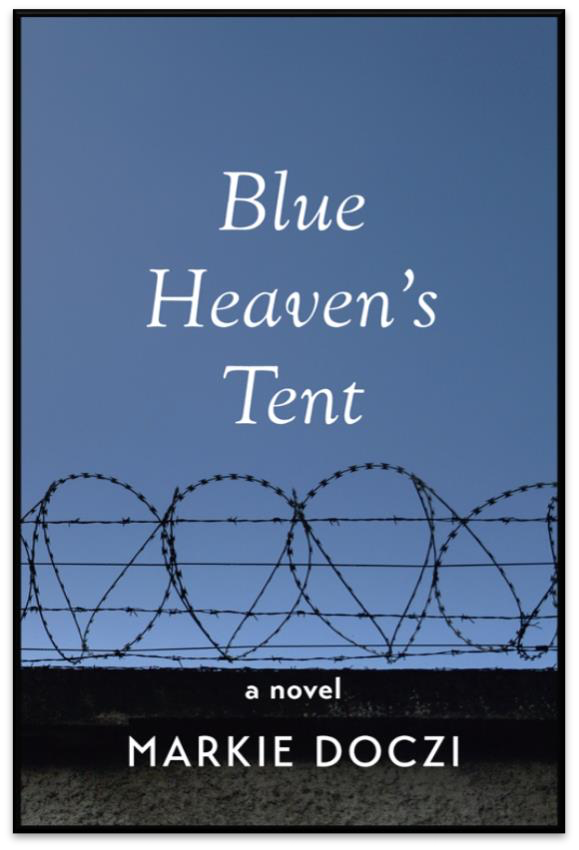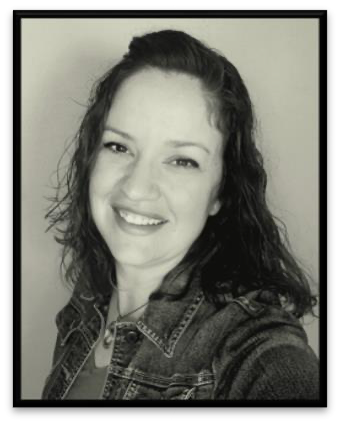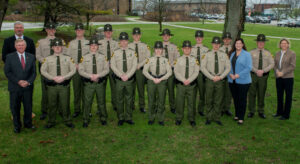Middleport resident Markie Doczi has book published


New Title from Markie Doczi Blue Heaven’s Tent: A Novel
Set in Berlin, Germany, in 1961, Blue Heaven’s Tent tells the story of Klaus Franke, whose life is changed forever when he wakes one morning to find himself separated from his family by barbed wire. Now trapped in Communist East Germany, Klaus grows increasingly desperate to escape as the barbed wire develops into the infamous Berlin Wall. Meanwhile, his wife, Gerda, is stuck in West Berlin raising their two children as a single parent. When Klaus is thrown into political prison, Gerda waits to hear–but fears to learn–of her husband’s fate.
Markie Doczi grew up in the country near Athens, Ohio. She has many hobbies, including cooking, painting, and reading–but writing has always been
her passion. In 2019 she published her original collection of poetry, Beneath the Old Oak Tree. Markie currently lives in Middleport, Ohio, with her husband and stepdaughter. Blue Heaven’s Tent is her first novel.
Interview with Markie Doczi
What inspired you to write this book?
When I was a kid, my grandfather (aka Gramps) told me a story which ultimately led to this novel. In the early 70s, while serving in the United States Air Force, Gramps served a tour in Germany. He visited the Berlin Wall one day, and met a man there who had been separated from his family ever since the night the barbed wire went up. He told my grandfather that he visited the wall every Sunday, because it was as close as he could get to his loved ones. That man, though I do not know his name, inspired Klaus Franke–the protagonist of Blue Heaven’s Tent.
Are your characters based on real people?
No; but, though my family of characters are fictional, they fit the mold of many German families after the wall went up. I also placed the Frankes’ home close to the wall, which enabled me to incorporate many true events that took place there into the lives of my characters. Essentially, I used this fictional family to tell the real stories of many. On a personal note, I also incorporated many dates and scenarios from my own life into the lives of my characters. For example, Klaus and Gerda’s anniversary is October 26th, because this is my real-life anniversary; and several humorous interactions between the two are based on my own marriage.

Where did the idea for the title come from?
I wanted a strong title that meant something to the story. I got the idea from an old German lullaby, which my protagonist’s wife sings to their children. One of the lines in that lullaby is, “Do you know how many stars are in blue heaven’s tent?” And that’s when the idea hit me. There is also a part at the end of the book where the title ties into the story–but I’m not going to share that here, because it’s a spoiler!
When did you know that you wanted to be a writer?
The short answer? I have always loved to write. I have a couple of poems that I wrote when I was too little to even know how to spell yet. As a teenager, I enjoyed writing assignments like book reports, and for a little while I edited a family newsletter. I have entered numerous writing contests over the years, winning small prizes here and there; and in 2019, I accomplished my first real writing achievement when I self-published my original collection of poetry, Beneath the Old Oak Tree.
Do you have any plans for your next book?
Yes; I’ve been working on a magical realism about Greek mythology, and have written nearly 70,000 words of it so far. I also have several non-fiction ideas waiting in the wings, including a coffee table book and a humorous memoir. There will likely be more historical fiction as well, as this is my favorite genre.
What is your favorite book?
That’s kind of like asking my favorite film, or food: I can narrow it down to a ‘maybe pile,’ but I don’t know if I can choose just one! My favorites would include The Mists of Avalon, by Marion Zimmer Bradley; Anne of Green Gables, by L.M. Montgomery; Love Comes Softly, by Janette Oke; and Jane Eyre, by Charlotte Bronte.
What advice would you give to anyone out there who wishes they could write a book?
My biggest suggestion would be, don’t rush it; most people live busy lives, so don’t pressure yourself with a time constraint. Take notes as you think of them–you’d be surprised how quickly these add up! I utilize a notepad app on my phone for just this purpose. Then, when you have time, sit down and expand those notes. I also suggest starting with non-fiction; when the facts are already there and just need to be written down, there is much less pressure than when you’re trying to create an entire plot, character, and storyline.
Will Blue Heaven’s Tent have a sequel?
I have no plans for a sequel at this point, but I am open to the idea. There is certainly plenty of historical material to work with. I suppose a potential sequel would depend on whether or not there is a popular demand for the next chapter of the Franke family.
An Excerpt from Blue Heaven’s Tent: A Novel
Klaus stood next to the small stool in his cell. For many hours each day he was not permitted to lie on his bed, which meant he had to either stand, or sit upon the wretched stool.
He remained ignorant of how long he had been in prison, his thickening beard his only way of marking the passing time. During the endless hours of solitude and insomnia, his mind had traveled far and wide. He’d caught himself wondering now and then if his mother had gotten over her cold; then he would remember that that had been ages ago.
Time was a funny and unsure thing. Every day dragged on painfully slowly, and there was no end to them. They just repeated identically, one after another, so that ultimately his time in prison felt like one long, unending day. The only break in the dark isolation was when he was taken in for interrogations; and the only marker between day and night, when he was allowed to use the bed versus the stool.
He couldn’t stand to think that he had endured prison for a year, but his cell had grown bitterly cold again in recent weeks, and his gut was telling him that he was rapidly approaching that mark. The thought of being apart from his family—let alone living in isolation itself—for an entire year was too much to bear. He remembered how he had felt on the first anniversary of the wall going up. Was his life to be no more than never-ending years of mourning? His nagging subconscious reminded him that it did get somewhat easier to adjust after—but he shut the thought down, his head jerking slightly as he argued silently with himself. He didn’t want it to get easier; for his family to become some distant memory, or he to become the same to them! He didn’t want to be mourned as a lost soul. He snapped his head up, suddenly and desperately hoping that his family was still waiting for him. The last thing he would ever want would be for his wife to suffer, but he preferred (selfishly, he knew) to think of her as watching out the window for him, rather than putting him in the ground.
He wished he had more memories to keep him company. He felt as if he had played the movie reel of his life repeatedly in his head until he’d run out of images. He wished, yet again, for a scrap of paper and a pencil. He knew, of course, that there would be none forthcoming, but had long ago made up his mind to do some therapeutic writing once he got out.
Klaus had only recently allowed himself to begin planning for the future again. He had been optimistic in the beginning, but felt his spirit getting sucked out of him, and had resisted for the longest time giving himself false hope. He looked down again at the stool beside him, his legs aching for rest. He remained standing. The stool no longer served as a seat, but a reminder. A reminder of the moment when he had lost all hope; when he had climbed upon it with a homemade noose of torn strips of bed sheets around his neck, ready to kick it over and be done with it all.






